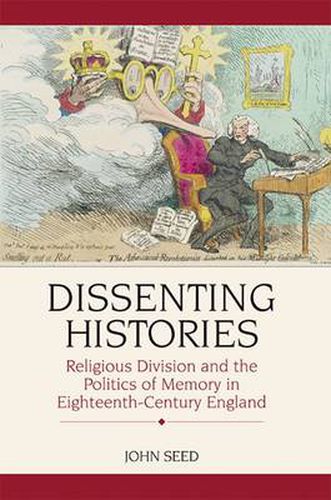Readings Newsletter
Become a Readings Member to make your shopping experience even easier.
Sign in or sign up for free!
You’re not far away from qualifying for FREE standard shipping within Australia
You’ve qualified for FREE standard shipping within Australia
The cart is loading…






The first major study of the historical writings of religious dissenters in England between the 1690s and the 1790s, this book redefines the way we understand religious and political identities in the eighteenth century. Dissenting Histories provides a synoptic overview of the development of religious dissent in England between the Restoration and the early nineteenth century, using Dissenters’ writings to open up new and different perspectives on how the past was perceived in this period. These writings are located within the wider political culture and the author explores how the long shadow of ‘the Great Rebellion’ of the 1640s stretched across the division between Church and Dissent. The author is not simply concerned with history as a representation of the past, but history also as part of the bitterly divided collective memory of the present. Focusing on the relationship between the history that historians wrote, and the history that men and women experienced, John Seed provides the reader with new perspectives on eighteenth-century England.
$9.00 standard shipping within Australia
FREE standard shipping within Australia for orders over $100.00
Express & International shipping calculated at checkout
The first major study of the historical writings of religious dissenters in England between the 1690s and the 1790s, this book redefines the way we understand religious and political identities in the eighteenth century. Dissenting Histories provides a synoptic overview of the development of religious dissent in England between the Restoration and the early nineteenth century, using Dissenters’ writings to open up new and different perspectives on how the past was perceived in this period. These writings are located within the wider political culture and the author explores how the long shadow of ‘the Great Rebellion’ of the 1640s stretched across the division between Church and Dissent. The author is not simply concerned with history as a representation of the past, but history also as part of the bitterly divided collective memory of the present. Focusing on the relationship between the history that historians wrote, and the history that men and women experienced, John Seed provides the reader with new perspectives on eighteenth-century England.